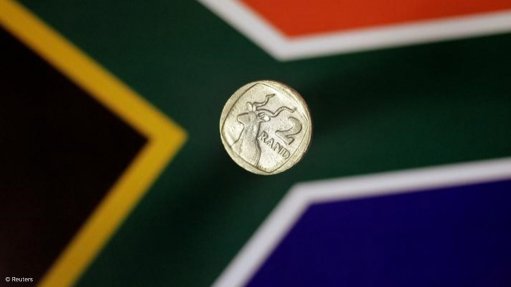
Photo by: Reuters
South Africans can now track government’s progress in economic and employment growth with up-to-date information on the new Operation Vulindlela dashboard, launched this week.
Operation Vulindlela was launched last year as a joint initiative of the Presidency and National Treasury to unlock key economic reforms and to fast-track the trajectory of South Africa’s policy reforms.
The initiative is headed by Deputy Finance Minister David Masondo, who reports to President Cyril Ramaphosa.
The new dashboard presents an overview of the milestones in 19 focus areas identified by government as priority reforms, spread out across five sectors.
Government stresses that while Operation Vulindlela is not a new plan it aims to ensure the effective implementation of existing plans.
ELECTRICITY
One of the key focus areas, as South Africa battles daily power cuts, is reform in the electricity sector.
This includes a 2021 deadline of increasing the role of independent power producers (IPPs), restructuring State-owned enterprise Eskom and addressing inefficiencies in municipalities’ management of electricity distribution.
According to the Operation Vulindlela dashboard, as of Thursday, the emergency procurement of 2 000 MW of power has been completed, alongside the implementation of Eskom’s Short-Term Power Purchase Programme.
However, IPP procurement and increasing the licensing threshold is still in progress, as is Eskom’s restructuring into generation, transmission and distribution entities.
DIGITAL COMMUNICATIONS
Government’s reforms in the digital communications sector seek to attract infrastructure investment, lower the price of data and broadband, and ensure that more low-income households have Internet access.
The three focus areas in the sector for 2021 are increasing digital spectrum and finalising policy for the deployment of electronic communications networks. By 2020, government wants to complete the migration from analogue to digital.
WATER
Reforms in the water sector are dependent on strong regulation and the establishment of a water resources infrastructure agency by 2023.
The dashboard shows that while government has processed outstanding water-use licence applications, it is working to improve water-use licensing processes.
Also completed under water reforms is the implementation of a comprehensive national programme to help municipalities improve water services.
TRANSPORT
By 2023, government aims to have the Transnet National Ports Authority (TNPA) corporatised to increase the competitiveness of South Africa’s exports and reduce the cost of imported goods.
TNPA and Transnet Port Terminals are divisions of the Transnet group, which owns and operates many port terminals. Government has acknowledged that because of Transnet’s role as owner and operator, it has been difficult to hold it to account for poor port performance.
Government wants to separate port owner and port operator into independent subsidiaries and create incentives for better efficiency and private sector competition.
Meanwhile, government also wants to give private rail operators access to the freight rail network, through an access fee to Transnet, to attract private freight rail investment and to ensure that more goods are transported off the national roads network.
VISAS
Government’s plan to attract skills and promote tourism will rely on reforms to the visa regime, which includes an e-Visa system and the expansion of visa waivers, earmarked for implementation by 2022.
South Africa will also improve its policy framework to attract skilled immigration and to allow investment in the country.
To see updates in each of the sectors, visit the Operation Vulindlela Dashboard.